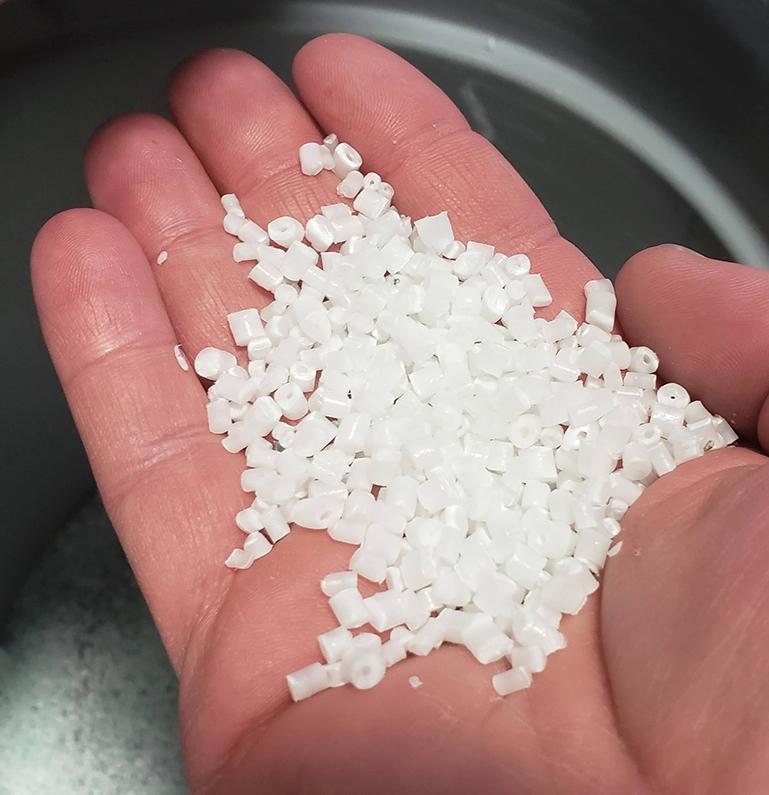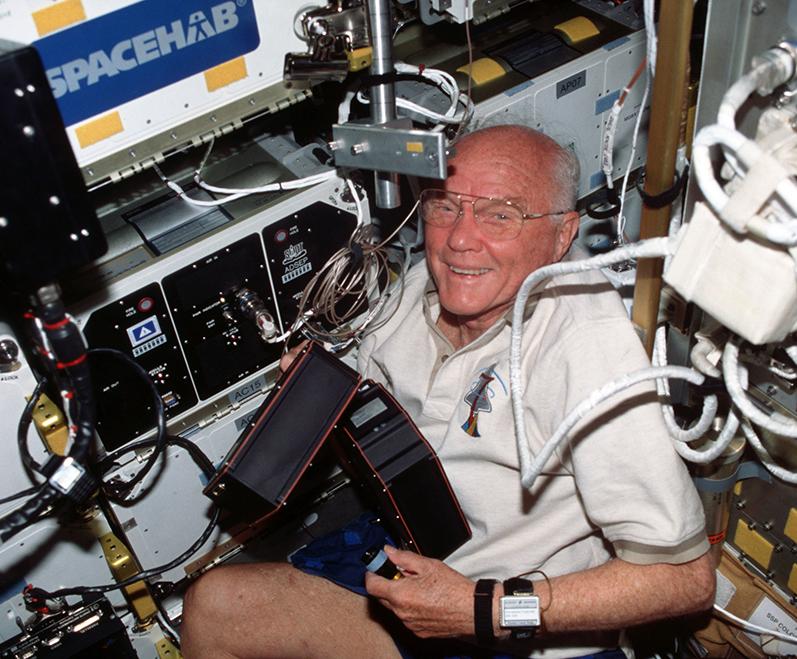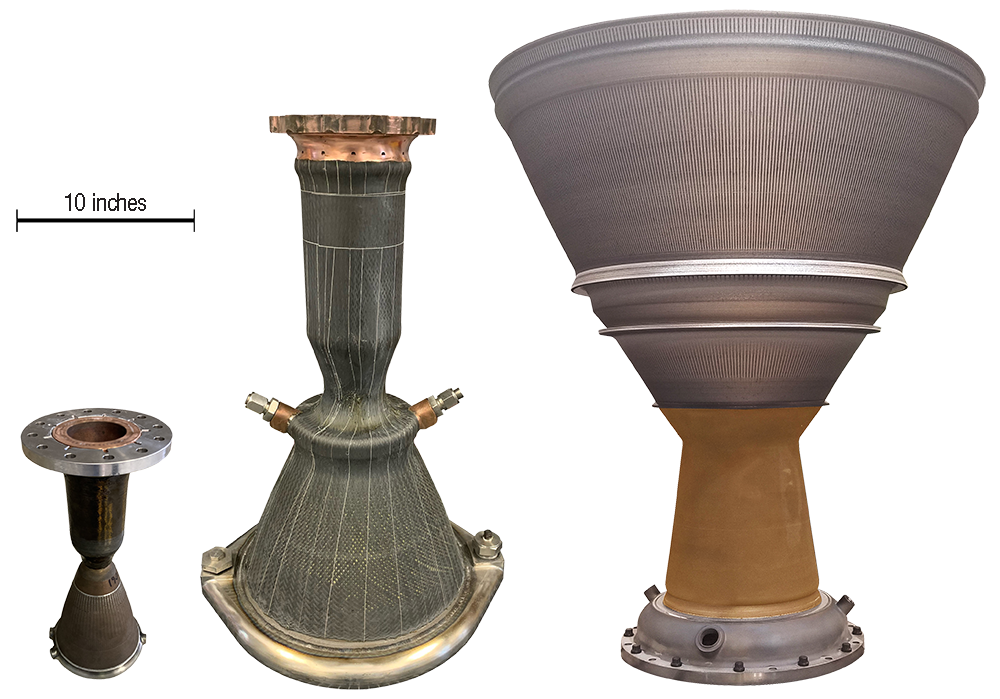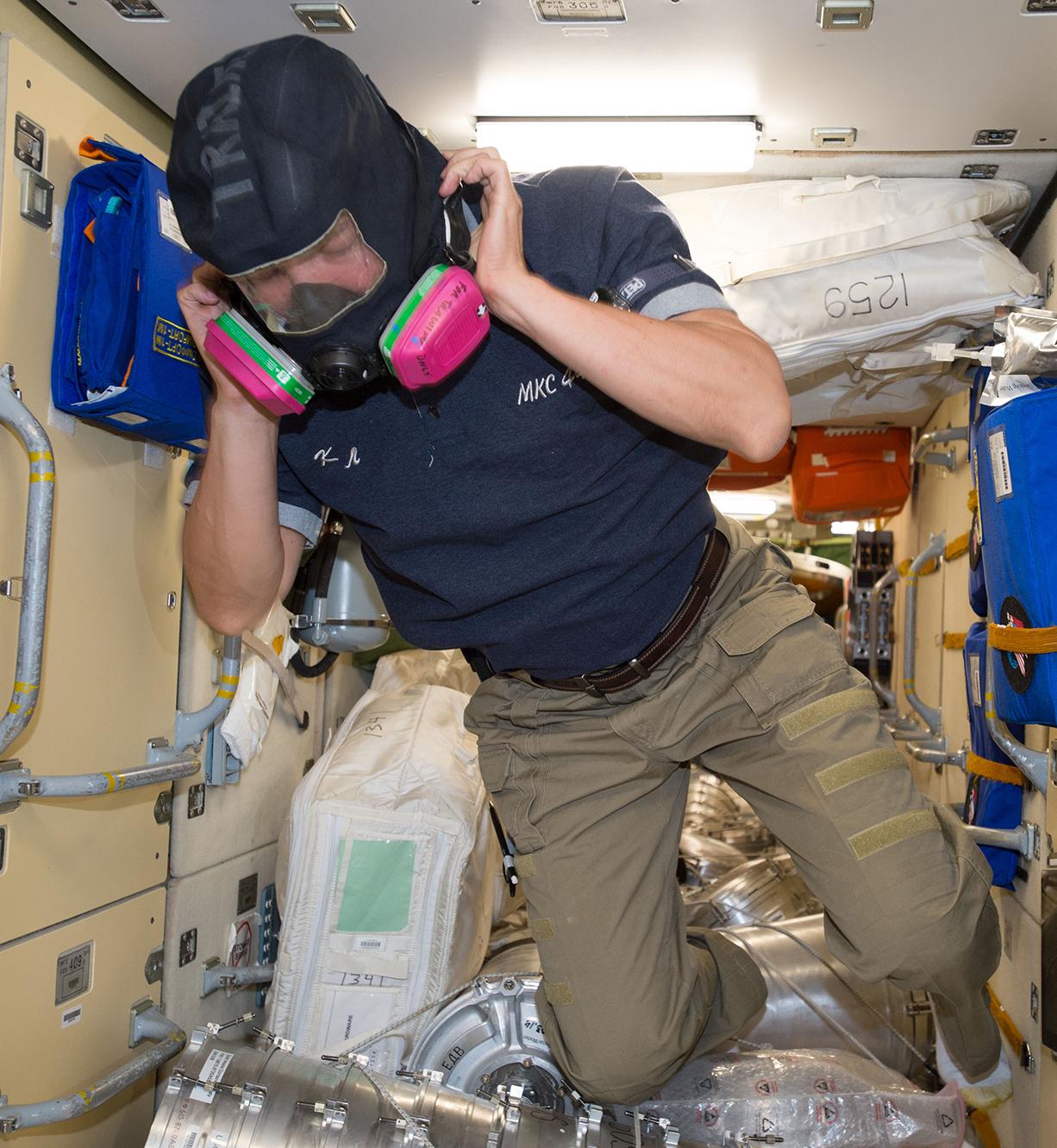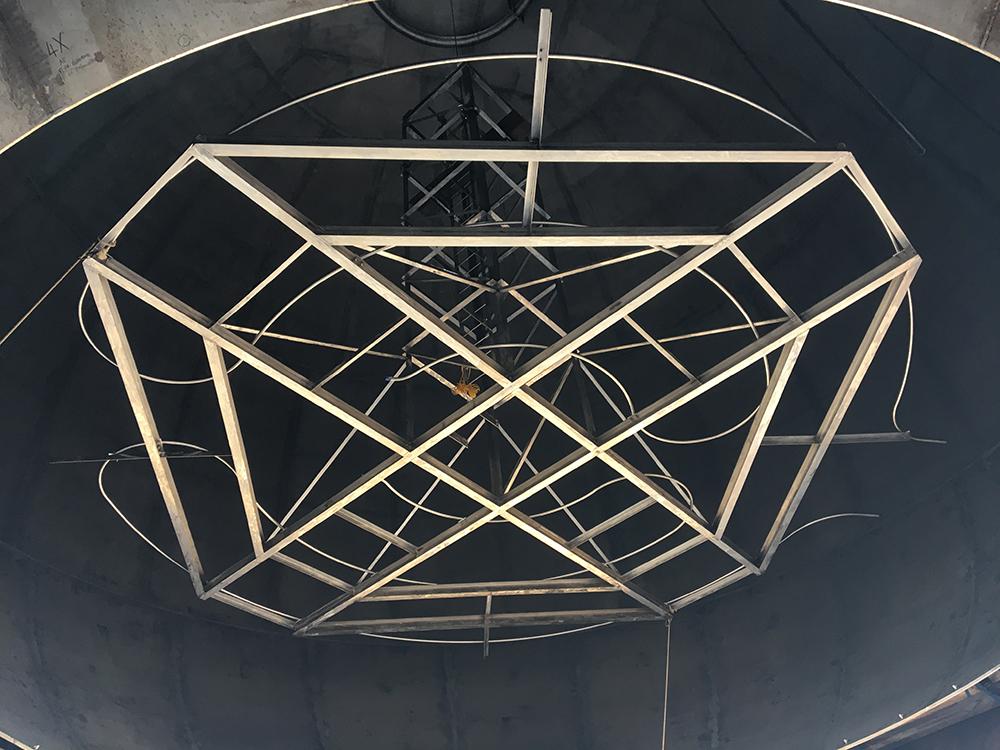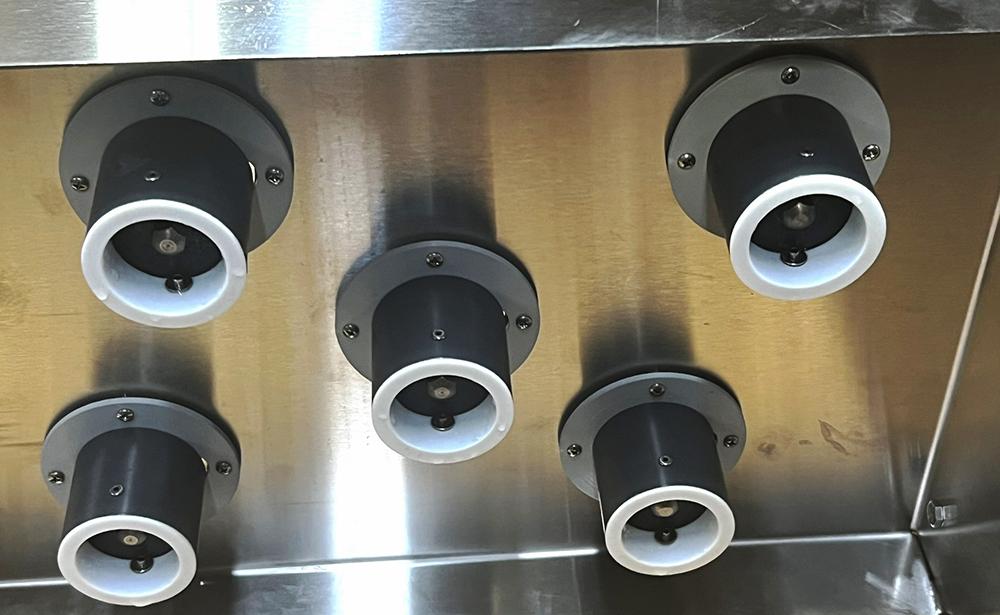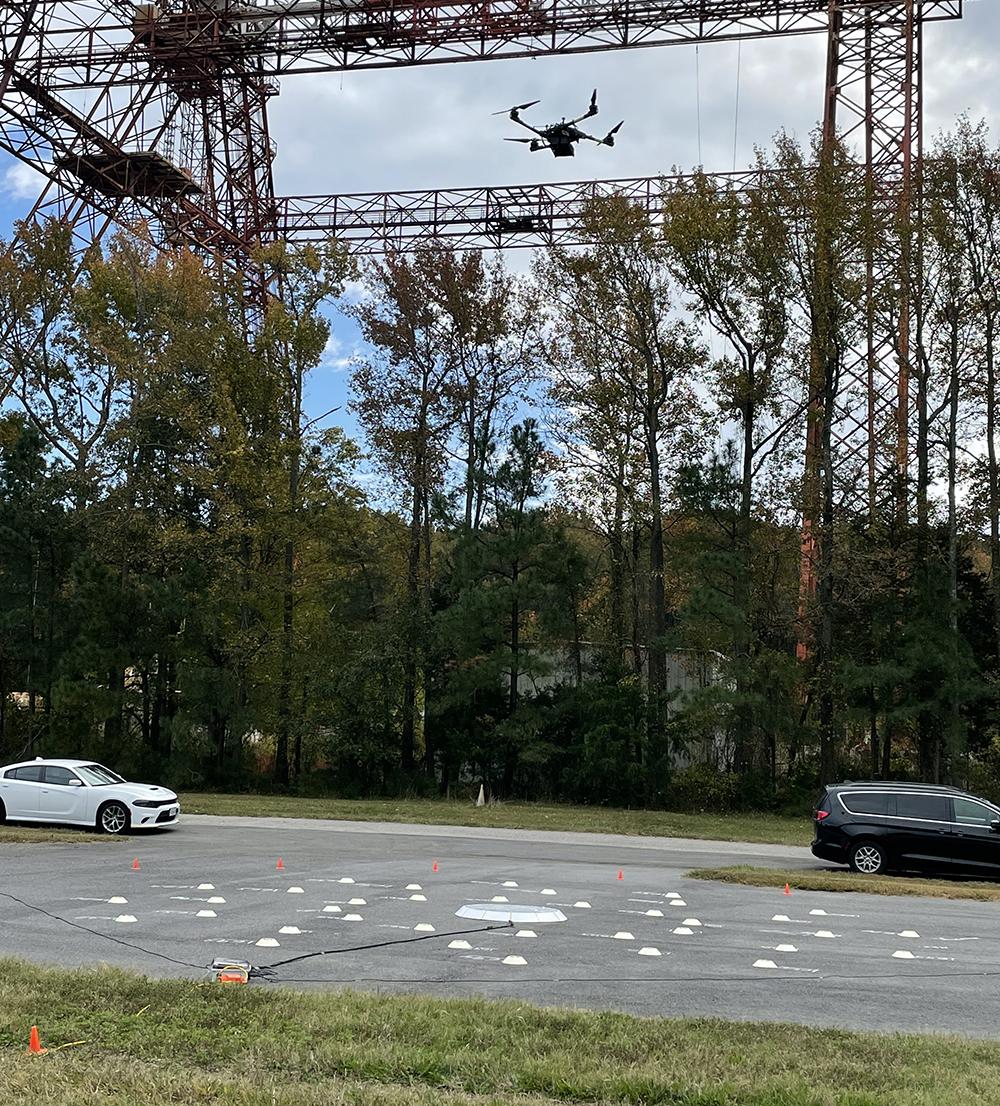Takin' the Heat
What do you get when you combine Unitech LLC with NASA's Langley Research Center? You get an exciting new high-temperature polyimide with versatile applications. Langley has licensed this technology to Unitech, of Hampton, Virginia, and J. D. Lincoln, Inc., of Costa Mesa, California. Through a Memorandum of Agreement (MOA) and its license, Unitech is now selling the new polyimide, RP46.
Dr. Ruth Pater, of NASA Langley, developed RP46 for aerospace applications. The material was designed for re-entry vehicles and high-temperature engine components; however, its versatile nature makes it applicable as a molding, adhesive, coating, composite matrix resin, foam, or film. RP46 can also be fabricated over mesh for use in molds. Unitech is currently searching for a way to apply RP46 to injection molding, a process that forces or injects material into a mold.
RP46 presents a profitable option to manufacturers, because the ease of manufacturing the resin and the reduction in curing time saves money. Consumers save money because RP46 is more durable than similar products. For instance, PMR-15, a predecessor to RP46, was susceptible to microcracking when used as a coating or adhesive in high-temperature situations and often required reapplication. The chances of microcracking are significantly reduced with RP46 because of its unsurpassed ability to resist heat and corrosion. With a temperature range of -150 to 700 °F, it is difficult to find a resin with similar heat-resistant capabilities. It is also less toxic than its predecessor, which contains a toxic carcinogen. The elimination of the carcinogen makes the product safer for the consumer, the manufacturer, and the environment.
Unitech is a recognized manufacturer of specialized coatings, resins, and paints. The unique combination of the MOA and licensing agreement means that the company can modify the properties of RP46 to meet the specific needs of its customers. According to Wayne LeGrande, president of Unitech, the MOA allows his company to draw on Langley's expertise as they further tailor RP46 to commercial applications: It's a perfect example of how research can make an effective transition into the marketplace. Technical assistance is also provided to Unitech under a NASA Space Act Agreement.
Unitech, a client of the NASA Hampton Roads Technology Incubator (HRTI), has achieved numerous sales to the private sector. Of particular interest is the sale to a company that tested the product for use as a potting material. However, the company was unable to overcome a curing problem until Unitech chemists stepped in and the company was able to resume its evaluation of RP46.
Liquid and powder forms have been sold to various companies in the aerospace industry. Unitech plans on further applying the benefits of RP46 to automotive components, marine engines, drilling operations, and high-temperature lighting and heating units. Presently, the government uses it for various aerospace operations, such as reusable launch vehicles, space exploration systems, and advanced aircraft engine components. The material exhibits additional opportunities in the areas of electronic and circuit boards, commercial aerospace, automobile manufacturing, corrosion protection, and thermal insulation.
Marine manufacturing companies have shown particularly high levels of interest. Resins used in marine environments usually fail quickly, but RP46 withstands the extreme effects of heat and saltwater corrosion. The use of RP46 allows companies to protect their equipment, thereby lengthening the life span. Because of its unique positioning with NASA, Unitech will continue to provide private industry with customized applications of this breakthrough material.
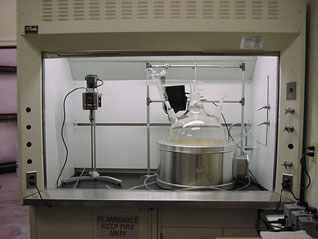
Unitech's custom lab reactor can generate multiple sample requests of RP46 as well as small production quantities of up to two tons per month.






